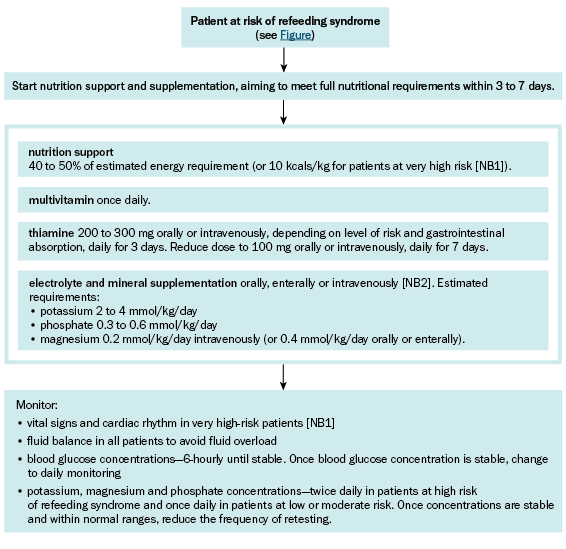Management of adults at risk of refeeding syndrome
The manifestations of refeeding syndrome are mainly caused by hypophosphataemia, precipitated by increased glycolysis when carbohydrates replace body fat as the main source of energy. This may result in cardiovascular collapse, heart failure, rhabdomyolysis and muscle weakness, which in turn may lead to ventilatory failure, seizures or delirium. Hypokalaemia and hypomagnesaemia can cause cardiac arrhythmias, and glycolysis-induced thiamine depletion can lead to Wernicke encephalopathy (see Thiamine supplementation).
Evidence to guide management of refeeding syndrome is lackingda Silva, 2020; Suggested management of adults at risk of refeeding syndrome outlines the suggested management of adults at risk of refeeding syndrome.

NB1: Very high-risk patients include patients with eating disorders, very low body weight or very low body mass index.
NB2: Electrolyte replacement should be considered in all high-risk patients before starting nutrition support.
